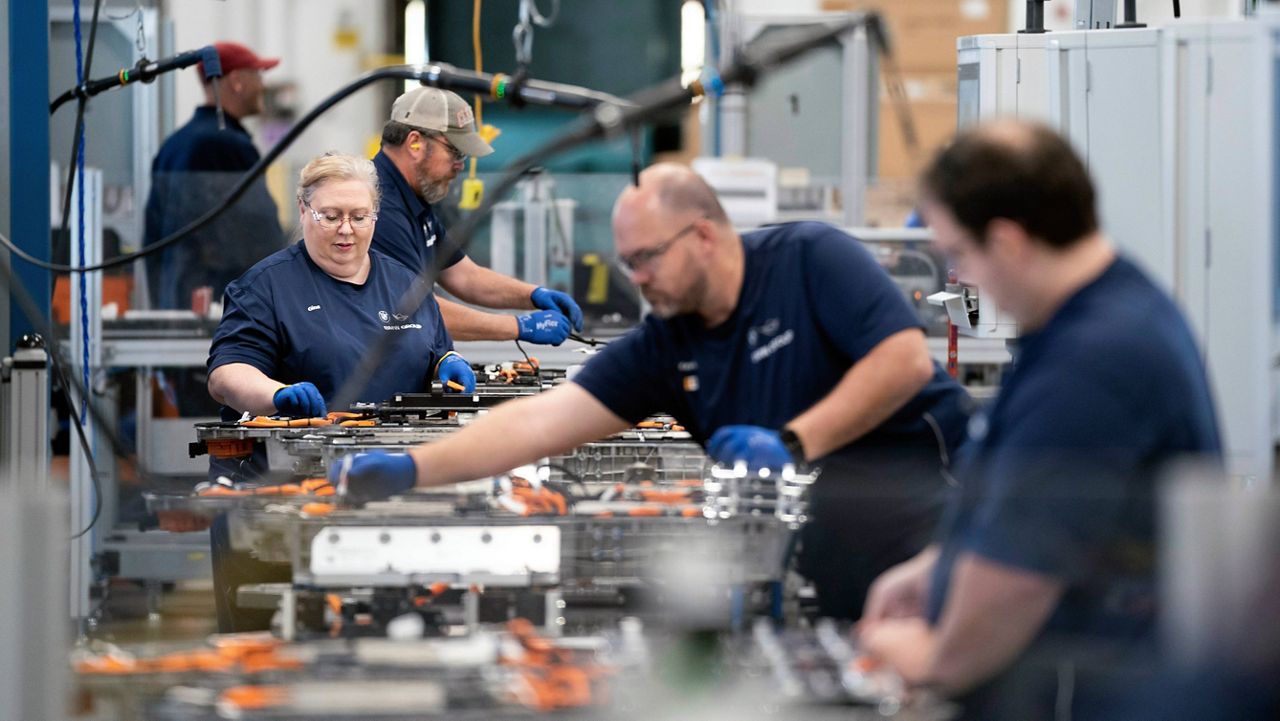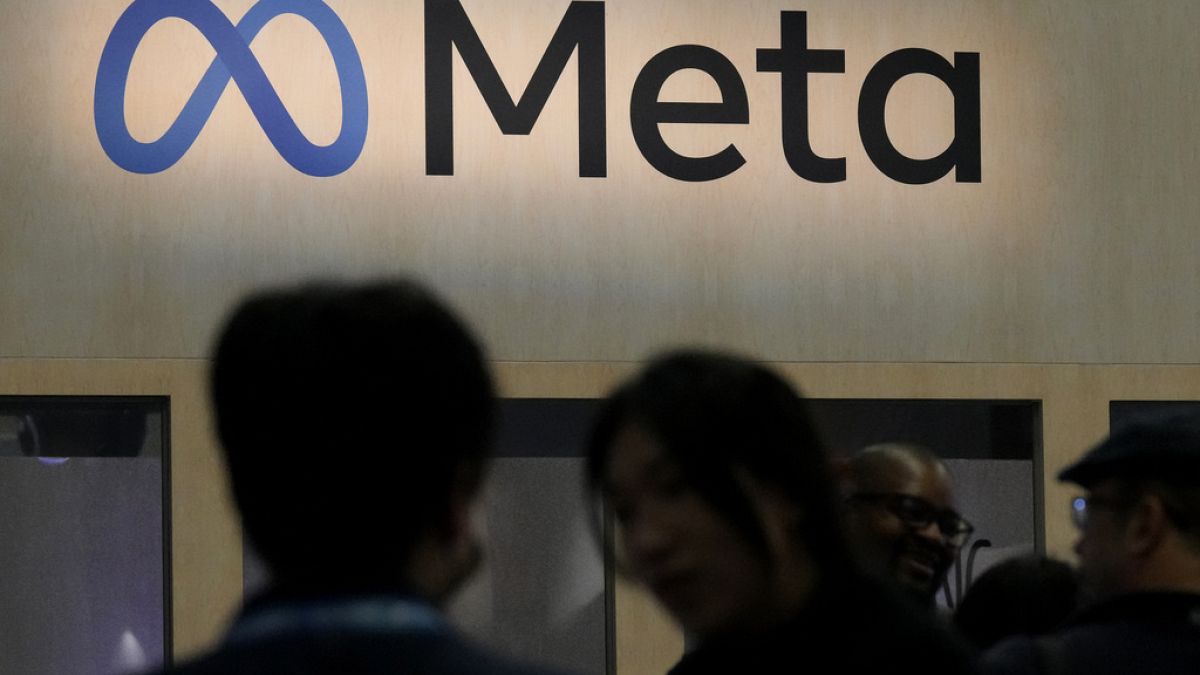World
From Argentina to the world: Milei’s far-right political impact

Buenos Aires, Argentina – In the Hilton in Buenos Aires’s swanky Puerto Madero neighbourhood, young men in royal blue suits too big for their shoulders gathered for an event organised by the Conservative Political Action Conference (CPAC).
The conference is a mainstay of the political right in the United States, but last week’s event was its first in Argentina, and a sign of the growing importance of this country to conservative politics, a year into the presidency of Javier Milei.
The ultra-libertarian Milei headlined the event, featuring alongside a cast of ultra-conservative and libertarian influencers. A red Make America Great Again cap bobbed in the crowd, as reporters chased around far-right figures, like Santiago Abascal, the head of Spain’s Vox, or Eduardo Bolsonaro, the son of former Brazilian President Jair Bolsonaro and now a legislator in Brazil.
“Clearly, Javier Milei is a leader on a global level,” one reporter said, ambiguous on whether she was making a statement or asking a question. “Absolutely,” Bolsonaro responded. “Otherwise, the largest gathering of conservatives in the world wouldn’t be here in Buenos Aires.”
One year after catapulting into the presidency of the second-largest economy in South America, Milei has stepped into the international spotlight.
From a “madman” with a mop of hair to being name-dropped by key figures in the incoming US administration of Donald Trump, the self-described anarchocapitalist who campaigned with a chainsaw in hand is, by some accounts, currently the “tip of the spear” of global far-right politics.
He was the first foreign leader to meet Trump in person after his election win in November and spoke at an America First Policy event at Trump’s Mar-o-Lago resort in Florida. When visiting Spain earlier this year, he eschewed formal meetings with the left-wing government to speak at a Vox event where he was treated as a conquering hero.
“Power. If we don’t have it, then the lefties pieces of s*** do,” Milei intoned during his speech before CPAC delegates in Buenos Aires, who had paid $100 a ticket for general admission.
The CPAC event was as much about raising Milei on a right-wing American pedestal as it was about basking in his own particular glow. A sort of feedback loop has emerged among a set of right-wing leaders, from Milei, to Trump, El Salvador’s Nayib Bukele and ultra-nationalist Hungarian leader Viktor Orban, whose echo of each other helps amplify strength in what Milei routinely calls a “culture war”.
“We must stand together, establishing channels of cooperation throughout the world. We could call ourselves an international right-wing, a network of mutual assistance made up of all those interested in spreading the ideas of freedom around the world,” he said.
‘Exemplary’ radicalism
At CPAC, the list of speakers and attendees included right-wing legislators from Peru, Mexico, Uruguay, and Chile, and Mexican libertarian businessman Ricardo Salinas Pliego. Lara Trump, Donald Trump’s daughter-in-law, gave the opening address, after appearing in a video that showed her and a group of other delegates dancing alongside Milei the previous night.
Ex-Trump adviser Steve Bannon and Jair Bolsonaro, the latter of whom cannot leave his country because he has been indicted in Brazil for taking part in an alleged attempted coup, sent greetings in recorded messages.
Young men who have been following Milei for years and whose proselytising of his message helped drive him to victory in 2023 dominated the audience, giving it a notably youthful tinge.
“Milei has ended up strengthening the positions of the far right, much more than [merely] copying them,” said Pablo Seman, a well-known Argentinian sociologist and anthropologist.
For other right-wing leaders, his radicalism is “exemplary”, Seman argued, appearing as the “wet dream of businessmen” because of his zeal to shrink the state and deregulate institutions.
“There are a great deal of people that survive, more or less, outside of the state order – because there is no formal [work], because the state is capturing less and less, because it’s solving less all the time, because everything moves faster than the state,” said Seman. A president like Milei, who appeared on the cover of The Economist magazine last month under the quote “My contempt for the state is infinite”, can boost that tendency, appealing to those who feel left behind the state, while also trying to dismantle it.
“That’s what I think is the strongest thing about Milei,” said Seman. “His capacity to influence a destructive direction of the state.”
Milei has slashed government spending by roughly 30 percent in real terms, shuttering nine of 18 government ministries, firing tens of thousands of public sector employees, halting public works projects, refusing to increase pensions so they keep pace with inflation, cutting back funds for public universities, whittling down subsidies on energy and transit, and establishing a new Ministry of Deregulation and Transformation of the State.
The day before CPAC, Milei’s government announced that universities and hospitals could start charging foreigners to use public education and healthcare, and that it would expand the grounds on which it could prevent entry into the country, or expel an immigrant who had been caught committing a crime, all measures designed to crack down on immigration from neighbouring countries.
His most notable achievement is around Argentina’s chronically high inflation – Milei’s government has managed to slash it to less than 3 percent a month, from a high of 25 percent in December 2023. At the same time, poverty has climbed to 53 percent in the first half of 2024, up from 42 percent when he took office in 2023. Despite these levels, and amid protests from pensioners and students, he has retained support among his base, who see his policies as a necessary break with Argentina’s past governments.
“We in America look to Argentina to see what we can accomplish,” said Kari Lake, a Republican figurehead who lost a bid to be governor of Arizona, during CPAC, calling Milei a “heavily caffeinated version of Donald Trump”.
“Milei is leading the world forward in a new golden age of liberty, I really believe that,” Ben Shapiro, a conservative commentator, told the CPAC crowd. Then he mimicked Milei’s slogan “Viva la Libertad Carajo” – long live freedom, dammit – although not with quite the same growl as the Argentinian head of state.
Standing by the US
Seman, the Argentinian sociologist, regards Milei as the most actively pro-American leader in Latin America.
Fernando Cerimedo, a strategist for Milei during his campaign and now under investigation in Brazil for an alleged role in the attempted 2022 coup, points out that Milei’s pro-American stance has led to Argentina taking an increasingly supportive role to the US on the world stage.
In October, Milei fired his foreign minister after the Argentinian delegation voted with most of the UN members to call on the US to end its economic blockade of Cuba. His government later said it was considering possibly withdrawing from the Paris Agreement on climate action, something that Trump has pledged to do once again. Argentina has also become one of the few countries in the UN General Assembly to vote alongside the US against efforts to restrain Israel’s actions against the Palestinians.
“Javier [Milei] has shown that, like him or not, he is strong in his decisions. He can stand up to anyone and say, yes to this and no to that. And the world needs leaders like that,” said Cerimedo.
For Matias Font, 19, who lives in a middle-class neighbourhood of Buenos Aires, Milei continues to dazzle in much the same way he did when he first listened to him at the age of 11. He was drawn to his personality. “His form of being combative with the politics that has been ruining the country,” he said. “And that which made our parents feel desperate over the situation.”
Now, at the CPAC event, he chased down Eduardo Bolsonaro to get a selfie, and has his hair tousled in return.
“He said it reminded him of Milei,” said Font.









